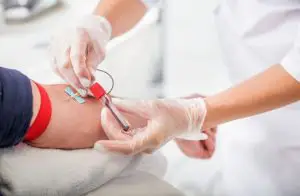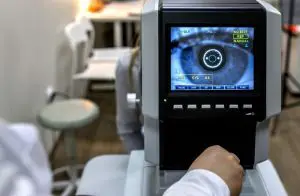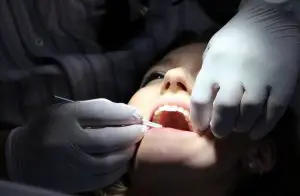Health is a very broad subject, and almost everyone has their own opinions on what is considered “healthy”. Of course, there are some general “rules” most people follow: drink lots of water, cut down on sugar and oil, eat more vegetables… but our body is a pretty complex machine, and there are many aspects we have to take care of when it comes to our body and health. The pandemic has probably brought the topic of “healthcare” into the spotlight even further, so we’ve come up with a simple checklist to help you take better care of yourself. Go through it, and see if you’ve done any of these things (recently or regularly) to maintain your body and health!
1) Full Body Checkup
A full body checkup screens and tests different aspects of your health and body, depending on where you go, and what sort of package you sign up for. Most full body checkups include the below:
- Blood test
- Urine test
- Chest X-ray
- Vision test
- Resting ECG
- Physical examination
- Consultation and report
Each medical centre’s offerings may vary slightly, so it’s best to take a look at each centre’s website if they have want to find out exactly what the checkup includes, and for pricing as well.

2) Eye Examination
We probably associate eye examinations with how well we can see things most, but that’s only one part of an eye examination. Eye examinations can be administered by different people, ranging from opticians to optometrists, and most often the basic vision test done at the optician’s is to determine if you need glasses. A full eye examination is much more comprehensive, and consists of an external examination, followed by specific tests for visual acuity, pupil function, extraocular muscle motility, visual fields, intraocular pressure and ophthalmoscopy through a dilated pupil. Eye examinations are important as they can help detect eye diseases and even brain anomalies.

3) Mental Health Consultation/Therapy
Sure, everyone’s concerned about their physical health, but it’s important to take care of our mental health as well. Compared to physical health, mental health is still not talked about as much, but going to a therapist’s should be as routine as going for a full body checkup. You wouldn’t want to wait till your body starts breaking down to go see a doctor, and it should be the same for your mental state! A routine visit to a therapists or mental health expert can help you determine your state of mind, and you can potentially get professional help if there is indeed an issue you feel is overwhelming for you. You could also check out these mental health apps as an additional resource!

4) Sexually Transmitted Infections (STIs) Check
As long as you’re sexually active, getting checked for STIs once a year is the recommended course of action. If you have multiple partners, you should check for STIs more frequently–every three to six months. Speak to a doctor about how frequently you should get tested, as there are different factors including age group, number of sexual partners, or having a new sexual partner that determines your frequency of testing. On a related note, frequent testing should also not replace the use of a condom–protection is the first step.

5) Colorectal Cancer Screening
Colorectal cancer (CRC) is the most common cancer among Malaysian men, and sources state that you should start getting screened at around age 45. There are a few methods to screen for CRC:
- Faecal occult blood test (FOBT): Annually
- Stool DNA test: Every 3 years
- CT colonography: Every 5 years
- Colonoscopy: Every 10 years
Experts recommend screening till the age of 75, and screening for those above 75 should be individualised, considering the patient’s overall health and prior screening history as well.

6) Dental Checkup
Dentists recommend that you go for a dental checkup every six months, or twice a year. It’s great to have the reassurance that your teeth are in good condition (all the better to eat more yummy food), and that you’re not plagued with plaque and cavities. Scaling is also done, which is what we like to think of a professional deep clean of the teeth, involving careful removal of plaque bacteria and tartar on the surface of the teeth just below the gumline. And if your teeth are in excellent condition all the same, it never hurts to hear the reminders to brush your teeth properly, floss, and all that.

7) Fertility Check
Well, we suppose that this would be more for the couples planning to conceive, so we’re just here to report that it’s not an absolute necessity to undergo fertility tests before you start trying to get pregnant. For those who have been trying to get pregnant but haven’t managed to, experts recommend that you go for fertility tests after a year of trying to get pregnant if you’re under the age of 35, and six months for those above the age of 35. Visits to the gynaecologist and urologist won’t hurt either, just to check that your parts are in good condition even if you’re not trying to get pregnant.

8) Chiropractic Consultation
According to spine-health.com, a chiropractor is a health care professional focused on the diagnosis and treatment of neuromuscular disorders, with an emphasis on treatment through manual adjustment and/or manipulation of the spine. Most people see chiropractors if they have joint pain, most notably the back, but chiropractic treatment can also help with headaches, improve posture, and athletic performance. Even if you don’t suffer from pain but say, has a job that requires you to sit long hours, you could possibly benefit from chiropractic care as well. The best way to find out if you do actually need chiropractic care is to consult a chiropractor, so if you haven’t been, maybe now’s the time, and you can check out these Top 10 Chiropractic Centres in KL & Selangor.

9) Mammograms
A mammogram is an x-ray picture of the breast, used to detect early signs of breast cancer. Generally, women around the age of 45 should start mammogram screening, and the frequency of the screening is determined by the risk level of each individual. Frequency ranges from yearly to 3-yearly after considering the benefits and risks of screening. You could also perform breast self-exams to check for lumps and other breast changes, which isn’t strictly a screening method, but more for awareness and to take your health into your own hands. You can refer to the image below on how to perform self-exams, which is somewhat similar to how doctors perform examinations on patients.

10) Eat Healthy
Okay fine, this isn’t a test or screening, but this is something you can definitely do actively to maintain your health. You are what you eat, so make wise food choices. Speak to a nutritionist if you really want to know what’s the best for you, otherwise, the general rule of “moderation is key” works pretty well, we think! On top of that, you could also consider taking health supplements, but of course, do speak to your doctor or a professional if you have any doubts!
















